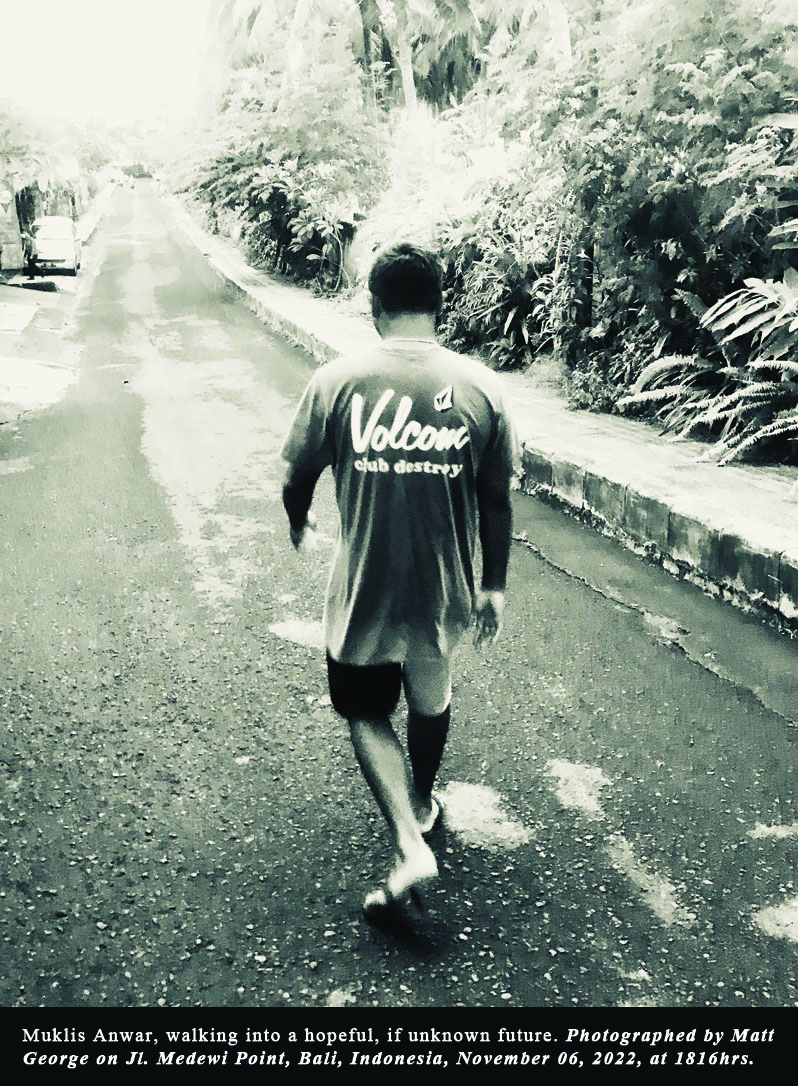CAUGHT INSIDE # 132 IT’S UP TO US

With the collapse of the Bingin cliffs due to greed, Surftime asks, is an ethical future for tourism development possible in Indonesia? Or is it just too much to ask? For this month’s editorial, something a little different. We put this question to writer Jack Oneill Paterson. Here he is:
Bali, more so than any other surf location on the planet, is romanticized in the memories of old white men. Nowhere was as good, and nowhere has been so cruelly spoiled by fame. Nostalgia is a hell of a drug. Bali has always endured an unrelenting onslaught of slanderous commentary from surfers, critics and moral purists across the globe. It has been mocked for being inauthentic, over-populated, polluted, and sterilized. Whilst Bali’s early clientele of dope-smuggling surfers turned into today’s OnlyFans millionaires, buff business moguls, and Russian fitness bloggers, surely this would make for an interesting study in human metamorphosis. The cost of this change is never owed to the cynical expat.
Being forced to share the Bukit with a few hundred more friends is a flesh wound compared to the theft of local land and ecosystem destruction. Obviously, tourism in Bali is ripe with complexities, contradictions and ethical dilemmas, but most people’s disgruntlement doesn’t extend much further than the crowded lineups and traffic. Yet, the “surfing paradise” that may have disappeared over the years is felt firstly by the local community. What right do we, as western surfers who have committed every environmental and political sin, have to comment on the way another country chooses to monetize its resources? Well, we don’t really have one. Development be damned, full speed ahead. But, surfers may actually have a lot more to answer for here than one might think. Nobody, over the past 50 years, has been more efficient at exposing untouched utopias across the world than the humble surf explorer. While this is a very modest and low-impact example of foreign investment, it does sow the seed for unethical developers to descend upon the treasures.
Tourism, when done correctly, can be a great driver for wealth, education, and opportunity. For this to be the case, it’s important to ensure that the local community is running the show and not being taken advantage of, and it’s here that some well-meaning western surfing involvement might actually be beneficial.
Surfers should be aware of this. Whether or not we can help create ‘Surf Protected Areas’ has yet to be tested, but it’s a hell of a start. So far, 23 Surf Protected Areas have been implemented across Indonesia. When developers come knocking, the goal is for these communities to know the value of their land and surf. But let’s face it, development money talks.
And so, visiting these places like can be a remarkably good way to spend your money and establish this worth. If these communities are given the opportunity to develop sustainably, on their own terms, then you’re free to live your surf fantasies, knowing that your pennies are going straight into the communities, whilst also protecting ecosystems, culture, and local land ownership. Who knew you were such a philanthropist? Like growth, the diaspora of the privileged is unavoidable, and there probably will, one day, be ten other versions of Bali scattered across Indonesia. This will be good. This will be bad. But as always, it’s up to us to balance the two so that the people who call these places home will reap the benefits in direct correlation to our pleasures. Really now, as human beings, is this really too much to ask?
-J.O.P-
By Jack Oneill Paterson



Comments
Post a Comment